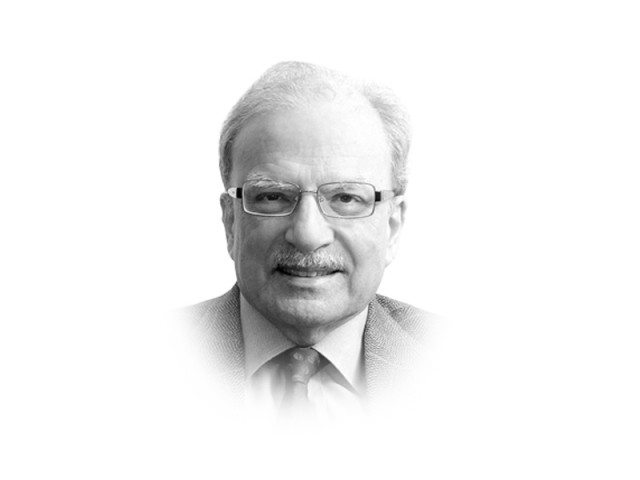Inequality and political instability
The deprived can become politically active, and force the political and economic systems to change

Inequality comes in many forms. It can relate to the differences in personal and family incomes, to regional differences, to differences among ethnic groups. While this economic phenomenon has received a great deal of academic and policy attention in the West, it has been largely ignored in the developing world.
It has become the focus of recent political discourse in the United States. Some of what is being discussed in that country has relevance for Pakistan. The latest American voice raised to express considerable concern about the long-term consequences of inequality is that of Janet L Yellen, the Federal Reserve chairwoman. Speaking at a conference on inequality at the Federal Reserve Bank of Boston, she said that “the past several decades have seen the most sustained rise in inequality since the 19th century after more than 40 years of narrowing inequality following the Great Depression”. It was, she continued, “appropriate to ask whether the trend is compatible with values rooted in our nation’s history, among them the high value Americans have traditionally placed on equality of opportunity”.
Yellen focused on four sources of economic opportunity: the means to raise children, access to education, owning a small business and inheritance. Research done at America’s central bank, showed that the distribution of those opportunities was becoming increasingly unequal. For instance, the share of wealth held by the lower half of the households fell from three per cent in 1989 to as low as one per cent in 2013. The state of the ‘bottom 99 per cent’ has become a potent political slogan in the country.
These findings by the United States’ central bank can be applied to Pakistan. Not much serious research has been done in Pakistan on the trends in various manifestations of inequality, let alone what causes them. But the four determinants identified by the head of the US central bank are relevant for Pakistan. The poor in the country don’t have the means to take care of their families. They don’t have access to quality education even when the children of poor households get to attend school.
Persistent inequality has political consequences. In reviewing a number of books on the subject, Mark Vandevelde of the Financial Times noted that inequality causes hardship and has a built-in dynamic that keeps the rich happy and the poor miserable. He wrote: “Give the wealthy too much rope and they will reel in still more money and power, unravelling the ties of social cohesion until a life of ordinary means is made threadbare.” This comment applies very well to Pakistan.
One of the books reviewed by Vandvelde, Inequality and 1%, by Danny Darling presents evidence suggesting that in unequal societies people are less healthy, worse educated, shorter lived and less happy than their more egalitarian peers. Another book, The Rich: From Slaves to Super-Yachts: A 2000-Year History by John Kampner provides colourful details of the lives of the super-rich. For the rich, wealth becomes an intoxicant whose effects are constant through the ages. “It makes people fearful and ruthless, and it distorts their vision until success and self-enrichment look the same.”
The deprived can become politically active, and force the political and economic systems to change. The rise of extremism in the country, persistent violence in Karachi, and built-up grievances in Balochistan are some of the more recent examples of the political consequences of inequality. Reducing inequality, therefore, must be given high priority in shaping public policy.
Published in The Express Tribune, November 3rd, 2014.
Like Opinion & Editorial on Facebook, follow @ETOpEd on Twitter to receive all updates on all our daily pieces.
















COMMENTS
Comments are moderated and generally will be posted if they are on-topic and not abusive.
For more information, please see our Comments FAQ